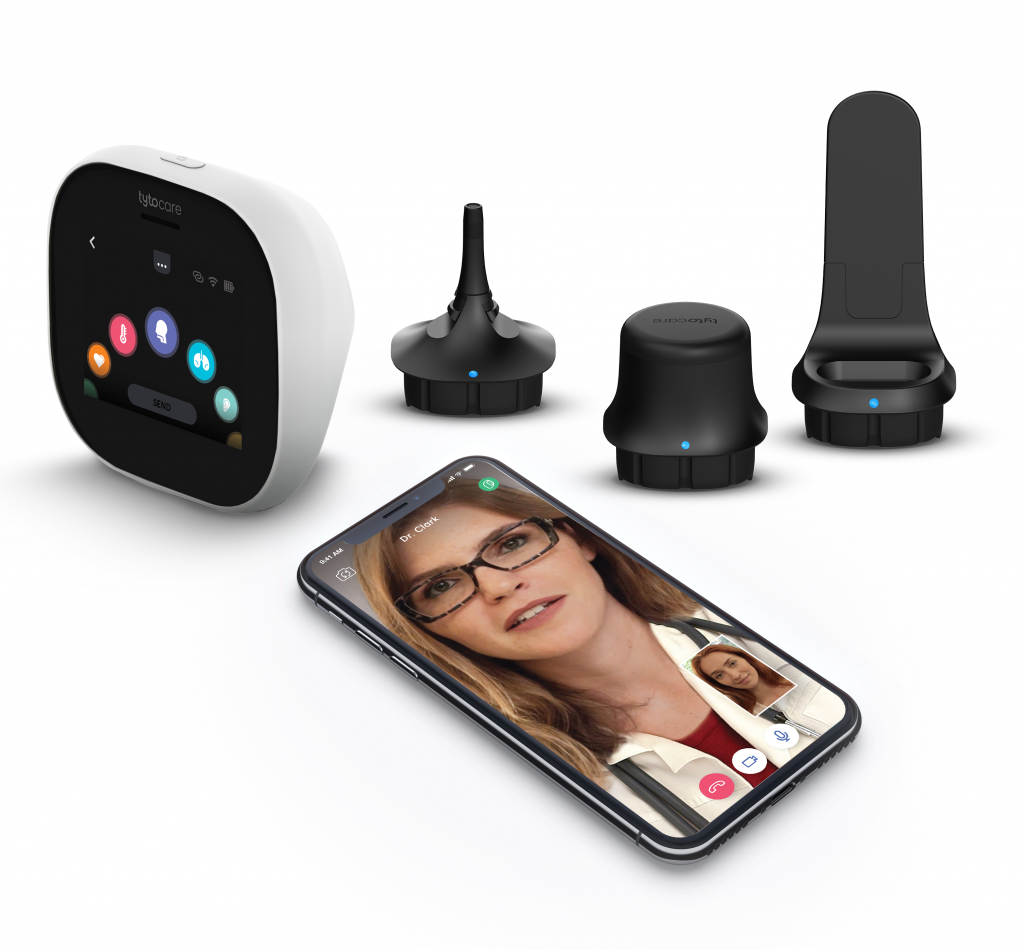Australian first: Goodwin pilots GP tele-examination
A joint pilot program with Goodwin Aged Care Services and Next Practice Deakin seeks to make GP and medical examinations more accessible for senior Australians.
The program utilises innovative technology that allows GPs to conduct physical examinations virtually, expanding the concept of telehealth into tele-examination.
The technology, developed by TytoCare, provides aged care workers with a comprehensive suite of tools that allow easy examination of the ears, nose, lungs, heart, throat, skin, abdomen, and temperature, which is controlled and reviewed remotely by the GP in real-time.

Dr Paresh Dawda of Next Practice Deakin says this technology provides the opportunity for a consultation that’s as clinically sound and effective as face-to-face but without having to be in the same location.
“This is an excellent step forward in increasing accessibility and responsiveness of health services for Australian seniors,” says Dr Dawda. “Accessing primary health services is a real issue for seniors, especially for those who aren’t mobile and have difficulty leaving the house.”
“GP home visits or visits to residential care facilities are sometimes limited, partly due to the travel time, so providing care for those who most need GP consultations is a real challenge for the industry. TytoCare goes a long way to solving this issue.”
“I also believe it can provide a more positive experience for the patients by utilising the accessibility features of technology, for example, those who are hard of hearing can read the auto-captions on the screen,” says Dr Dawda.
“I don’t know of anyone in Australia who’s doing this work in primary care. While tele-examination occurs in the hospital system and in rural areas, this program extends high-quality virtual care services to become available for a far wider audience.”
“There are many other advantages to a system such as this, for example, a resident could have a daughter in Sydney or overseas who would now be able to attend an appointment whereas she wouldn’t have been able to otherwise.”
“I really do believe that enhanced virtual care is the next complimentary step in health care with significant benefits for our senior population.”
The three-month pilot will engage with roughly one hundred Goodwin residents and clients across two cohorts throughout the ACT. One device will operate on-site in Goodwin’s residential care facility David Harper House, and another device will be used by Goodwin’s home care team, which will see the enhanced virtual care occur in people’s homes.
Tamra MacLeod, Goodwin Executive Manager Clinical and Health Services says Goodwin is very excited by this project, especially during this time of lockdown when minimising people’s movement is so important.
“Tele-examinations would greatly improve the residents’ safety. It means that people can get the medical advice they need in the safety of their home without having to be exposed to clinics.” Said Ms MacLeod.
“It also means our residents and clients can get consultations sooner without having to wait until a doctor comes to visit the home as it allows our carers to do the check-up themselves.”
TytoCare can be used by anyone; carers, nurses, even digitally literate patients themselves.
Connecting to a smartphone or tablet, the clinician controls the device settings virtually, as well as providing directions to the carer or patient both verbally and visually, with picture instructions on the screen to help guide the user as to where to place the device.
While the technology allows for many consultation aspects to be conducted remotely, the pilot will not replace physical consultations for Goodwin residents and clients. Dr Dawda and other medical professionals will continue to deliver health services in their usual manner, with the addition of virtual examinations. Dr Dawda said, “it’s not about either face-to-face or virtual care. It’s about both to build on a responsive service delivering comprehensive and continuity of care.”
Goodwin and Next Practice Deakin will work together to ensure carers are able to operate the equipment and that clients feel comfortable and safe in consulting with their GP in this manner.
Dr Dawda says he is confident in the technology’s quality and that the pilot program is a great opportunity to explore how the platform can be tailored to suit the aged care environment and increase positive outcomes for residents and home care clients.
“It’s a great opportunity to see how we can better provide services to meet the needs of the community, particularly during the current environment of lockdowns, where we want to provide optimal care but minimise the risk of transmission,” he said.